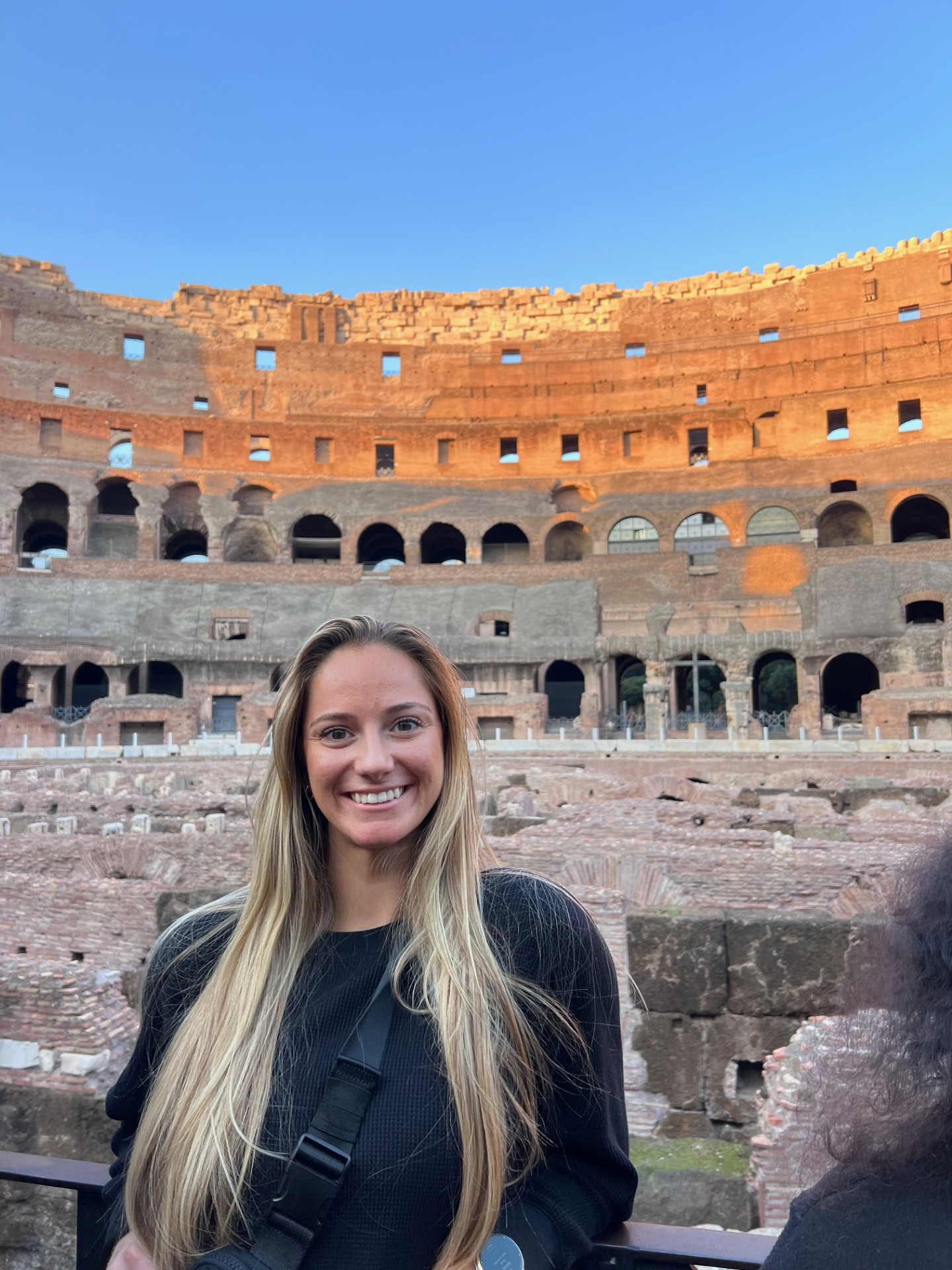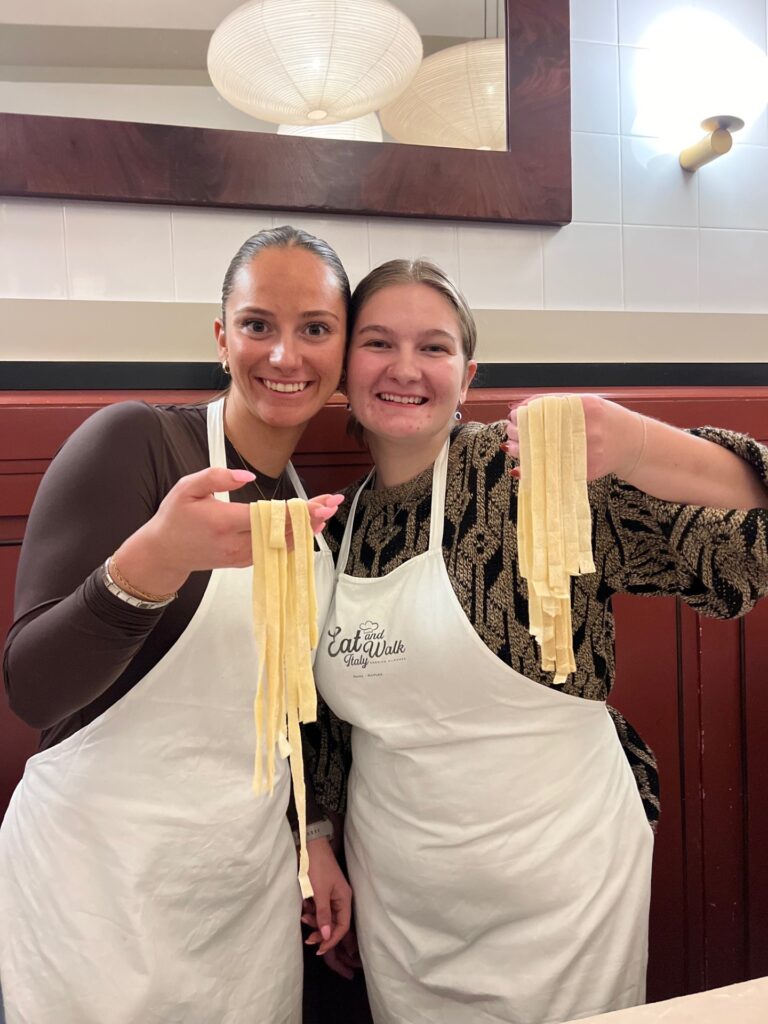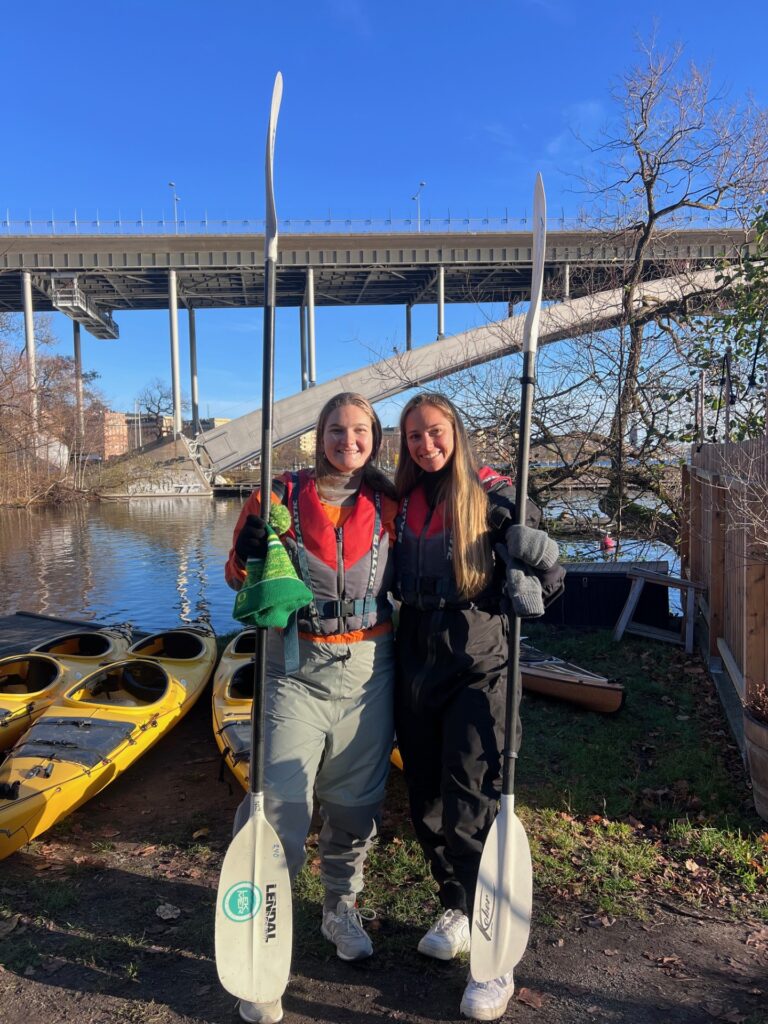The Business of Experiences – A Personal Take on Travel
By Riley Ovall, Events and Communications Specialist
Traveling to a new country for the first time is an exhilarating mix of excitement, curiosity, and let’s be honest—a little bit of fear. When I traveled to Rome, Italy, this past November, I experienced all of the above. My trip included a visit to my sister, a University of Washington Seattle student studying marine biology abroad, and it marked the first time either of us had ventured beyond the U.S. The journey didn’t just broaden my horizons—it opened my eyes to the burgeoning industry of travel experiences and the business opportunities that come with it.
As someone who works within business education, I couldn’t help but notice the thriving economic ecosystem which created memorable travel moments. Rome, a city steeped in history and culture, provided me with a firsthand look at the “business of experiences”—a concept that blends tourism with curated, authentic activities designed to engage travelers in meaningful ways.


Guided by Opportunity
My first day in Rome I stayed at an Airbnb just a block away from my sister’s apartment, but she had classes all morning, leaving me to fend for myself. Overwhelmed by the pressure to make the most of my time, I turned to the internet for guidance. A quick search of “what to do in Rome” revealed a treasure trove of pre-packaged experiences: Colosseum tours, bus trips to iconic landmarks, pasta-making classes, and even guided explorations of ancient tombs.
Initially, the sheer volume of options felt daunting. But as I explored further, I began to see these offerings for what they were: not just tourist traps, but thoughtfully crafted opportunities for visitors to connect with the city. These experiences gave me a sense of reassurance. I wasn’t alone in my exploration—Rome’s businesses were there to guide me.
Experiences as Economic Drivers
The travel industry has shifted significantly over the years. Today, travelers crave immersive, meaningful experiences that allow them to connect with a place and its people. For entrepreneurs, this trend represents an incredible opportunity. With just a few taps on our smartphones and a pre-loaded credit card, we can book a tour to explore some of the most ancient cultural experiences!
Consider one example: Rome’s pasta-making classes. These experiences are more than just a fun activity; they’re a gateway for tourists to learn about Italian culture, food traditions, and history. At the same time, they’re a source of income for local chefs, small businesses, and tour operators. By monetizing the cultural expertise and unique skills of local residents, these businesses turn authenticity into a profitable enterprise.

Stockholm, Sweden, my next stop, offered a different lens on the same concept. During my stay, I had the privilege of staying with a friend’s family who warmly welcomed us into their home. They shared home-cooked meals and introduced us to their favorite Midsummer traditions, even in the heart of winter. They also gave us a glimpse into Swedish social life during the colder months, showing us how exciting the winter can be despite the frosty weather and the sun setting at 3:00pm. My sister and I also booked a winter kayaking experience through the channels of Stockholm. Paddling through the icy waters was an unforgettable adventure that perfectly captured the blend of thrill and connection that modern travelers seek. This experience came from a Google search of “what to do in Sweden” and thanks to our local tour guide, it was an absolute highlight!
The Balancing Act: Tourism vs. Authenticity
While curated experiences are often marketed as “authentic,” travelers typically look to strike a balance between embracing tourist attractions and uncovering genuine cultural experiences. For me, that balance came in the form of splitting my time between structured tours and spontaneous moments with my sister. Wandering the streets of Rome, savoring gelato after a night out with her classmates, taking photos by the under-construction Trevi Fountain, and visiting her favorite cafes, where the barista would help her practice Italian, created memories that perfectly complemented the curated experiences.
The Bigger Picture for Business
This trip exemplified the potential for innovation in the experience economy. From small, family-run operations to larger companies leveraging technology to offer virtual tours or augmented reality-enhanced excursions, there’s room for businesses to thrive on every scale.
Travel isn’t just about seeing the world; it’s about experiencing it in ways that are personal and impactful. A person’s own goals and priorities are a huge part of which experiences are worth it or not. The business of experiences makes this possible, offering travelers curated opportunities to connect with their destinations while empowering local economies. My trip to Rome and Stockholm taught me that fear can give way to curiosity, and curiosity can lead to discovery—not just of new places, but of new ways to approach business.
As I reflect on my journey, one thing is clear: the business of experiences isn’t just a trend; it’s a cornerstone of modern travel. For entrepreneurs, students, and business professionals, it’s a reminder that innovation can come from simply listening to what people want and finding creative ways to deliver it.
